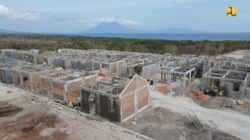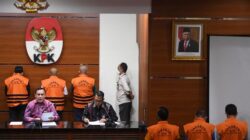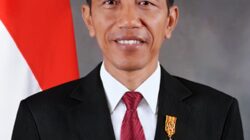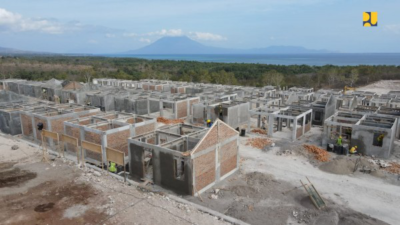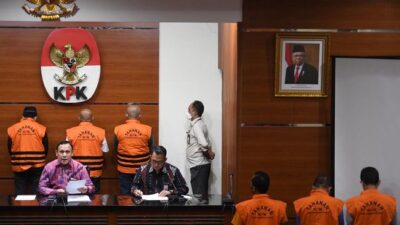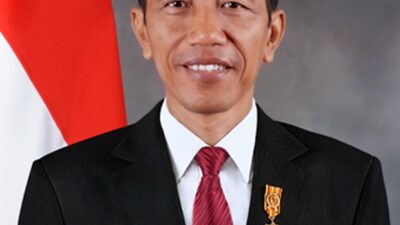Under the Electronic Information and Transaction (ITE) Law, public officials and corporations are now barred from suing their critics for defamation.
A significant judicial decision in
Indonesia
Excluding public officials, organizations, and businesses from pursuing defamation lawsuits against those who criticize them has been praised by human rights advocates as an advancement for freedom of expression. However, worries persist regarding other legislation that continues to be employed to stifle opposition in the globe’s third-biggest democracy.
On April 29, the Constitutional Court partly approved a petition filed by environmental activist Daniel Frits Maurits Tangkilisan, who contested a contentious defamation clause within the nation’s Electronic Information and Transactions ( ITE ) Law.
Many critics contend that the legislation is overly extensive and has been employed to suppress public dissent against authority figures.
Tangkilisan was handed a seven-month jail term last April due to
Facebook
Comments criticizing the ecological effects of developing a shrimp farm in the Karimunjawa Islands, located off the northwestern shore of Central Java. The local inhabitants jointly submitted a complaint, expressing their displeasure with Tangkilisan’s postings, which resulted in his legal action under the ITE Act. However, he was eventually cleared during the appeals process.
Last month, the Constitutional Court ruled that defamation cases under the ITE law can only be initiated by individuals, not by entities such as government agencies, collectives defined by their identity, institutions, businesses, professional bodies, or those holding certain roles.
Judge Arif Hidayat stated that criticism serves as “a means of oversight, rectification, and proposals concerning issues related to public welfare.”
He stated that limiting the right to freedom of opinion and expression would ultimately undermine the oversight function essential for preventing the misuse of power within governmental operations.
Another frequently cited provision in the ITE Law prohibits the dissemination of hoaxes that might trigger a public disturbance. The court specified that “disturbance” refers to actual physical unrest rather than virtual commotion, thus ruling out any material causing an outcry online.
social media
did not constitute a criminal offence.
The Constitutional Court’s rulings are legally binding and effective immediately in Indonesia.
State Secretary Prasetyo Hadi mentioned that the Court’s ruling was “positive news for free expression” in Indonesia.
Prasetyo underlined that freedom did not mean that anyone could “convey anything that does not respect other parties, [post] hateful [content] and other negative things”, adding that the government would heed the ruling.
National Police spokesman Trunoyudo Wisnu Andiko told reporters that police would “adapt, adjust, and follow the Constitutional Court’s ruling”.
‘Partial win’
Activists supporting rights applauded the court rulings yet cautioned that these might not effectively halt potential dangers to free speech and expression.
Human Rights Watch stated in a recent announcement that the decision represents “a significant move toward safeguarding freedom of expression on the internet.” They also called for the elimination of all defamation laws, consistent with recommendations from the UN Human Rights Committee.
Amnesty International Indonesia asserted in a statement that the House of Representatives must “amend the defamation clause to prevent it from being exploited by individuals to suppress critical voices within communities.” The organization further emphasized that accusations of defamation ought to be addressed through civil litigation rather than criminal proceedings.
Amnesty reports that from 2019 to 2024, there were at least 530 instances where freedom of expression was criminally prosecuted due to the ITE law, affecting 563 individuals. Most legal actions, totaling 258, originated from the National Police’s cyber division, with the remainder coming primarily from local government entities.
Raynaldo Sembiring, the executive director of the Indonesian Center for Environmental Law—a nonprofit organization based in Jakarta that promotes environmental justice—stated that the rulings were “positive developments worthy of appreciation.”
“The ITE Law is often used to [muffle] freedom of speech and other expressions by environmental and rights activists. This is a victory for all,” Raynaldo told This Week in Asia.
Hafizh Nabiyyin, head of freedom of expression division at the Southeast Asia Freedom of Expression Network, said the ruling was “a partial win” for democracy, but questioned why defamation articles still existed in the country’s laws.
Hafizh stated that although the Constitutional Court has made the definition of defamation stricter, the issue persists with regard to law enforcement agencies like the police and prosecution offices, which continue to treat defamation as a criminal offense.
Recently, law enforcement has started utilizing additional provisions within the ITE Law, apart from those related to defamation, to target critics as criminals, he noted.
On May 6, a college student in West Java was arrested after posting an AI generated viral meme featuring current President
Prabowo Subianto
kissing his predecessor,
Joko Widodo
She stands accused of disseminating obscene content and tampering with digital files, potentially facing up to 12 years behind bars should she be convicted. The trial continues; however, she was freed from custody on May 11.
Amnesty indicated that her detention was at odds with the recent Constitutional Court decision, stating that material offending internet users does not constitute a criminal offense.
“The police’s disregard for the Constitutional Court decision showcases the administration’s suppressive actions in public areas,” the organization stated.
Hafizh believes that the upcoming criminal code, set to come into force next year, poses an additional risk to free expression in Indonesia.
“In the new Criminal Code, in addition to the article related to defamation, there is also an article about insulting the president and state institutions. It is very dangerous because it prohibits insults or criticism against government officials,” he said.
More Articles from SCMP
Hong Kong’s IPO market ‘brisk’ despite ongoing US-China trade tensions: Paul Chan
As Philippines ‘bristles’ with foreign-made missiles, is it a deterrent or a danger?
Hong Kong police investigating after woman found dead under pile of items in flat
Chinese gyroscope could make navigation more stable for aircraft, ships and oil rigs
This article originally appeared on the South China Morning Post (www.scmp.com), the leading news media reporting on China and Asia.
Copyright (c) 2025. South China Morning Post Publishers Ltd. All rights reserved.


